#i <3 u joachim
Explore tagged Tumblr posts
Text

7 notes
·
View notes
Text
The wild references to Finland in Honkai Star Rail
Hello, in this post I'm going to go over the various references to Finland in Honkai Star Rail (Also touching a little on HI3) and explaining them the best I can so that non-finns can understand how hilariously delightful they are.
_

Starting with a funny one: Welt Yang.
The man is canonically 1/2 finnish, 1/4th chinese and 1/4th german according to sources I dont understand.
The way this is represented in Honkai Star Rail comes in one intentional form and one that may be an accident but I love it anyway:
1.
Welt's given name is Joachim Nokianvirtanen, a name that is utterly hilarious to a finn like me. Why? Well Nokianvirtanen is not a surname anyone here would ever have. Virtanen is a real surname, but for some reason Mihoyo decided slap Nokia in the front of it??
The name translates to "Nokia's rapids." Which adds to the funniness because yes Nokia is an actual place in Finland and not just the brand, but it is also very much the brand.
(Also Joachim is not a finnish name even if many finns are christian.)
This is the equivalant of naming an american character Jesus McDonaldslake.
2.
Welt's hair colour! A lot of people imagine blond and blue eyes when imagining a finn, but that's not actually accurate to the statistics. The most common hair colour here is in fact "Maantien harmaa." Translating to country road grey. Sometimes they leave out the word grey or replace it with blond. The colour is known as dirty blond or pale brown in english speaking countries 👍 This is less funny and just a cute detail.
_
Secondly we'll be going over Sampo Koski, a man many know to have a very finnish name.
BUT FIRST Fun backround info: I didn't know Sampo was in this game when I first started playing, so when he showed up and suddenly dropped finnish words at me I was utterly jumpscared.
Finland is very rarely referenced in media outside of our country, so most of us are NOT used to hearing anything about our home in media.
Furthermore there's actually a meme about this very thing that everyone in the country knows: Torilla Tavataan. This translates to "Lets meet at the marketplace" which is referring to the idea that when something massively cool happens we should gather together and celebrate.
The finns REALLY want to be acknowledged by the wider world lol

Anyway back to Sampo. His name is actually something I could totally see a real finn having, although his first name is a little out there.
Sampo is an item from finnish* mythology that was forged by a super capable smith with the help of his whole village. The item is golden with multiple spouts that produce valuable things like flour, gold and I believe... salt? You can find more about the item online.
Koski meanwhile means a river rapid. Uhm, lotsa water themed names here, huh!
Nothing that funny going on with his references to be honest. I can even say the voice actor did an amazing job pronouncing his name correctly.
_
Yunli's companion quest!
This is the newest batch of references I've ran into, but if I or anyone else finds more I'll be updating this list :]
In Yunli's companion quest we meet... Paavo. His name is Paavo--

This NPC introduces himself as a traveler from far away who's come to deliver a sword from his homeland back to the Xianzhou where it was originally forged. Here's why he made me giggle uncontrollably every moment he was on screen.
1.
Paavo is considered kind of a joke name, very comparable to naming someone Bob in america. The way NPC's referred to him sounded like "Mr. Bob" to me. It was so funny

2.
He is from the PLANET KALEVALA?? SAFlJ LJ ???
Kalevala is the national epic of Finland* and tells stories such as the one of Sampo's creation. The title does refer to setting of the story, but it is still weird to hear it as a name of a planet lol.
3.

Our food is really repetitive u right Mr. Paavo
4.
Paavo explains the sword he has come to deliver is called Miekka Kivessä. This is the finnish translations of "The sword in the stone." he proceeds to then explain the legend of the sword in the stone, which. It's not a finnish legend. We've never had a king, yet alone chosen them with a sword-- Not even in myths. Kalevala's highest ranking guy in the mortal realm is Väinämöinen who's an old wise man.
Also he says Miekka Kivessä wrong but that's to be expected, very funny, and also I admire the effort to at least try and make it sound natural.
5.
Finally, he later reveals his last name-- Which, why are we refering to him as Mr. Paavo if he has a last name...? Oh well! Mr. Paavo's last name is Kalastaja, which translates to Fisher. This is not a real last name in Finland. The english equivalent of this man's goddang name would be something like Mr. Bob Employee.
_
Since you've made it this far I assume you won't mind me rambling a bit more. I'm personally psyched to see Finland mentioned in non-finnish media and love the wonky but genuine attempts to include us!
I think considering how many weebs there are in Finland who've come up with illogical "Asian names" to sound cool online, it's only fair we got the same treatment back :P I hope they'll keep delivering and I'd love to visit planet Kalevala one day.
_
*It's worth noting Finland is a colonizer of the Sami people, and a lot of their culture has been annexed without any care or respect towards them.
Finland was also under colonialism itself for hundreds of years, and our myths have been largely lost to time with only some information left. It's super difficult to tell what is finnish mythology and whats the Sami people's mythology.
That's a fact that's deeply important to remember when discussing things like this, and I hope that the people reading this consider looking into how to help the indigenous people of the nordic region. Thank you.
496 notes
·
View notes
Text
— MUTUALS , YOU REMIND ME OF ! ( PART ONE )

@starglitterz you remind me of sleeping under the night sky :') the air is warm with the hum of cicadas.
@chichikoi you remind me of a love letter, with gojo doodles all over. hehehheheheehe.
@kazumist you remind me of walking into a gachapon store! :') there's excitement and also kind of a suspense because you really really want that neko keychain.
@kazucafe you remind me of a bunch of pretty wildflowers! yk, the ones that kazuha picked up for you on his walk.
@dawndelion-winery insanity /j . the thrill of willing a valorant game. and all the 'GG's that come after hehe.
@mccnstruck a sunny, cold day!! one of my ultimate favourite weathers :3 truly a W. sunny enough, but cold enough to not sweat, so everything is comfortable!
@faesther ou its you. you remind me of a shield. always, always a shield. as well as a dove! and xiao.
@haliyamori you. you remind me of a brand new watercolour set. hehe.
@oveloof hmmmmmm... dan heng. also chinese paper 2s HELPP but frfr you remind me of the happy feeling i get when i have enough space to download a game
@vennnnn-diagram HMMMM... lightning, and i'll always associate you with royal purple;;; and mcdonalds bc mcdonald joachim
@heiayen SUNFLOWERS. need i say more? and also hilarious japanese english dubs. ily dont kill me /lh
@tiredsleep kaeya. always and forever kaeya – more recently, gojo :') <3
@intothegenshinworld shiro!!! when i think of you, i think of the character shiro from voltron hehe. lovely to be around. also just. such a sweet person
@versadies YOU. i think of emoji reactions. particularly the fire and bangbang emojis.
@xiaoriae AUNI !!! you remind me of clouds! soft, pretty clouds that seem to watch and follow in your footsteps. hehe
@zhongrin MEIRINNNN. remind me of zhongli. always HAHAHHAA but also tea. you remind me of a cup of pu'er. something to share with your husband? ;)
@rintosei the freminet pfp HELP... that funni freminet pfp with the red cross over it. i hope u get him soon hehe. lovable diver boy with social anxiety. ok but fr, you remind me of bubblegum ice cream TuT
@ryuryuryuyurboat YOU. tulips. always. and a dorayaki. hehe. love u 2 bits kisses u mwah
@moonltwltz BABY !!!!! you remind me of soft pink bows... but with a black fishnet on top of them for your alt/grunge side of you hehe. love youuuuuuu with all my heart
@kyouko-writes hi dear!!! you remind me of lollipops ;)) something sweet and familiar.
@dustofthedailylife HI DUST !! you remind me of one of my favourite teachers previously. a sweet soul & kind human and just ??? so approachable ??? n e ways love u have a gr8 day
@mikacynth HAI MIKA you remind me of xiao and kaeya!!! and also a seashell. very pretty but i dont see you often (halp i think we r just missing each other on dash...) hope ur doing well!!
yayayyay part one is done! its something i've wanted to do for a while now;;;; hope yall like it HAHAHHA AND if you dont think thats you, tell me how you see yourself ;)
50 notes
·
View notes
Text
September - October 2023





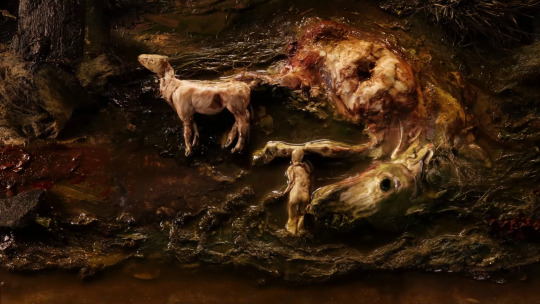














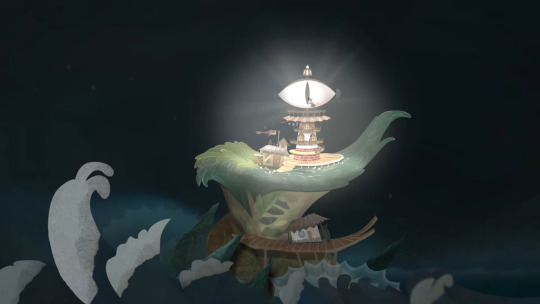









This month my favorite shorts were The Little Soul, Bird in the Peninsula and Cat again!
La Lune - Sabrina Ratté (2010), The Man Next Door - Youji Kuri (1965), Bird in the Peninsula - Atsushi Wada (2022), A Rule of Dreams - Naoyuki Tsuji (1995), Adventure Time: Fionna & Cake - Ryann Shannon & Steve Wolfhard (2023), The Little Soul - Barbara Rupik (2019), 27 - Flóra Anna Buda (2023), No. 1: A Strange Dream - Harry Smith (1939), The Hidden Fortress Akira Kurosawa (1958), WoodSwimmer - Brett Foxwell (2016), 虎狼来 (Kororon) - Ligton (2023), Train Project - Luhan Wang (2022), Revolutionary Girl Utena - (1997), The Watermelon Woman - Cheryl Dunye (1996), No. 3: Interwoven - Harry Smith (1947), Cat Again - Allyson Gonzalez (2018), Bang Bang! - JackieDroujko (2018), Birdboy: The Forgotten Children - Pedro Rivero, Alberto Vázquez (2015), OH IM DOING GOOD - Lewis Tarver (2023), I like u - Ayaka Ohira (2023), Fáros - Rayna Buxton (2021), High Tension - Alexandre Aja (2003), Squishy Fish Eggs - Jiayin Chen (2021), BOYS BEWARE - Callahan Bracken (2017), HOSHIMIYA TOTO+TEMPLIME - Resh (2023), Credits EX - plaaosert (2023), Drijf - Levi Stoops (2023), Cupid’s Bow - Manon Tacconi (2022), Skinned - Joachim Hérissé (2022), La perra - Carla Melo (2023)
#things i've (re)watched this month#we're back#I was so depressed in september I watched nothing it was bad#The Little Soul is absolutely amazing!!!!!!#man I really wanted to like Skinned but I just couldn't (be normal about fat and disabled character challenge: impossible)#it did look absolutely amazing though!#the watermelon woman was great and also very funny#high tension could have been good but that ending really didn't do it for me. it's a shame because I love crazy lesbians#also I wanted to see Anthy again you know how it is#2023#animation
9 notes
·
View notes
Text
hiiiiiii, thanks for tagging me baba grill @stupid-shithead, i finally have some time to answer the questions!!! lessgooo
1. are you named after anyone? i dont think so, however i'm quite happy i was born a girl because otherwise mom was gonna give me the goofiest Polish name ever. no offense to all the Joachims out there, i just dont think it would quite fit lol
2. when was the last time you cried? i'm honestly not sure, i'm not much of a crier. HOWEVER i remember seeing the memorial fb page of Stefan Karl Stefansson recently, and i was SO MOVED to read the part that he left behind his wife. LIKE THE WAY ITS WORDED IS SO SAAAD MAN, "LEFT BEHIND" YJDYDJSHJSY and yeah my eyes did in fact water
3. do you have kids? NO AND I DONT SEE IT HAPPENING IN THE NEAR FUTURE
4. do you use sarcasm a lot? yeah
5. what sports have you played/do you play? none really, however i used to be a hyperactive kid and liked to play everything in PE. climbed trees. swam. those were the days
6. whats the first thing you notice about other people? their expression and mood, this might be a trauma thing hehe
7. scary movies or happy endings? scary movies
8. any special talents? i used to be able to put my leg behind my head, im not sure i still can tho. is playing the guitar special in any way? if yes then that too
9. where were you born? Poland
10. what are your hobbies? learning useless facts, making music when im inspired (not too often but happens sometimes), gaming
11. do you have any pets? i live with my roommates cat and dog. so im like an aunt to them. they aint mine though
12. all-time favourite piece of media? TLOU. T L O U !!!!
13. fave subject in school? biology i'd say, esp everything connected with humans and animals
14. dream job? i dont really have any and never did, but i guess i'll like being a doctor once i finish uni. hope so????
15. eye colour? very unremarkable blue
im youre an active mutual of mine then consider yourself tagged! no pressure tho, just felt like babbling a little hehe :)
1 note
·
View note
Text
HEATHEN DISCO ep. 331 (26 March 2023) available for listening

We did it, thanks to all who pledged support during the CHIRP Spring Fundraiser.
Show is up now with my compliments.
HOUR 1
Los Kowalski – Paprika 2
Lush – Light from a Dead Star
Amon Düül II – Eye-Shaking King
Major Stars – Blank Slate
Purling Hiss – Shining Gilded Boulevard
Lisel – Stalactite
Thee Headcoats – The Gun in My Father’s Hand
Mikey Dread – World War III (Extended Version)
Cheater Slicks – Coming Back to Me
Smirk – Polyrhythmic Tics
The Flesh Eaters – Eyes Without a Face
Son of Dribble – Shed
Annelies Monsere – August
Iceage – Burning Hand
HOUR 2
Nuovo Testamento – In My Dreams
Mr. Big Mouse – Duck the Mouse
Imagination – Just an Illusion (Dub)
OMD – VCL XI
The Party of Helicopters – Brutal Enigma
Henry Franklin – Tribal Dance
Lia Kohl – when glass is there, and water
Los Mundos – Luz Perversa (live)
Ashra – Don’t Trust the Kids/Blackouts
Moodymann – If I Gave U My Love
Stare Case – Lost Head
George Darko – Medo Menuamon (12” version)
HOUR 3
Dendö Marionette – Frozen Edge
The Pop Group – We Are Time (dub)
Rank/Xerox – Basement Furniture
Dorothy – Softness
Current Affairs – Buckle Up
Disintegration – Make a Wish
Borzoi – Frac Daddy
Boomgates – Cameo
Mats Gustafsson & Joachim Nordwall – THERE ARE SOME WORLDS IN WHICH ALL DREAMS DIE (en glad stund)
The Scrotum Poles – Pick the Cat’s Eyes Out
The Wedding Present – Sticky
East Coast – You Can’t Let it Get You Down
Liturgy – 93696
The Afghan Whigs – My Curse
Public Enemy – Brother’s Gonna Work it Out
1 note
·
View note
Text
Events 12.17
497 BC – The first Saturnalia festival was celebrated in ancient Rome. 546 – Siege of Rome: The Ostrogoths under king Totila plunder the city, by bribing the Byzantine garrison. 920 – Romanos I Lekapenos is crowned co-emperor of the underage Constantine VII. 942 – Assassination of William I of Normandy. 1398 – Sultan Nasir-u Din Mehmud's armies in Delhi are defeated by Timur. 1538 – Pope Paul III excommunicates Henry VIII of England. 1583 – Cologne War: Forces under Ernest of Bavaria defeat troops under Gebhard Truchsess von Waldburg at the Siege of Godesberg. 1586 – Go-Yōzei becomes Emperor of Japan. 1718 – War of the Quadruple Alliance: Great Britain declares war on Spain. 1777 – American Revolution: France formally recognizes the United States. 1790 – The Aztec calendar stone is discovered at El Zócalo, Mexico City. 1807 – Napoleonic Wars: France issues the Milan Decree, which confirms the Continental System. 1812 – War of 1812: U.S. forces attack a Lenape village in the Battle of the Mississinewa. 1819 – Simón Bolívar declares the independence of Gran Colombia in Angostura (now Ciudad Bolívar in Venezuela). 1835 – The second Great Fire of New York destroys 53,000 square metres (13 acres) of New York City's Financial District. 1837 – A fire in the Winter Palace of Saint Petersburg kills 30 guards. 1862 – American Civil War: General Ulysses S. Grant issues General Order No. 11, expelling Jews from parts of Tennessee, Mississippi, and Kentucky. 1865 – First performance of the Unfinished Symphony by Franz Schubert. 1892 – First issue of Vogue is published. 1896 – Pittsburgh, Pennsylvania's Schenley Park Casino, which was the first multi-purpose arena with the technology to create an artificial ice surface in North America, is destroyed in a fire. 1903 – The Wright brothers make the first controlled powered, heavier-than-air flight in the Wright Flyer at Kitty Hawk, North Carolina. 1907 – Ugyen Wangchuck is crowned first King of Bhutan. 1918 – Darwin Rebellion: Up to 1,000 demonstrators march on Government House in Darwin, Northern Territory, Australia. 1926 – Antanas Smetona assumes power in Lithuania as the 1926 coup d'état is successful. 1927 – Indian revolutionary Rajendra Lahiri is hanged in Gonda jail, Uttar Pradesh, India, two days before the scheduled date. 1928 – Indian revolutionaries Bhagat Singh, Sukhdev Thapar and Shivaram Rajguru assassinate British police officer James Saunders in Lahore, Punjab, to avenge the death of Lala Lajpat Rai at the hands of the police. The three were executed in 1931. 1933 – The first NFL Championship Game is played at Wrigley Field in Chicago between the New York Giants and Chicago Bears. The Bears won 23–21. 1935 – First flight of the Douglas DC-3. 1938 – Otto Hahn discovers the nuclear fission of the heavy element uranium, the scientific and technological basis of nuclear energy. 1939 – World War II: Battle of the River Plate: The Admiral Graf Spee is scuttled by Captain Hans Langsdorff outside Montevideo. 1943 – All Chinese are again permitted to become citizens of the United States upon the repeal of the Act of 1882 and the introduction of the Magnuson Act. 1944 – World War II: Battle of the Bulge: Malmedy massacre: American 285th Field Artillery Observation Battalion POWs are shot by Waffen-SS Kampfgruppe Joachim Peiper. 1945 – Kurdistan flag day, the flag of Kurdistan was raised for the first time in Mahabad in eastern Kurdistan (Iran). 1947 – First flight of the Boeing B-47 Stratojet strategic bomber. 1948 – The Finnish Security Police is established to remove communist leadership from its predecessor, the State Police. 1950 – The F-86 Sabre's first mission over Korea. 1951 – The American Civil Rights Congress delivers "We Charge Genocide" to the United Nations. 1957 – The United States successfully launches the first Atlas intercontinental ballistic missile at Cape Canaveral, Florida. 1960 – Troops loyal to Emperor Haile Selassie in Ethiopia crush the coup that began December 13, returning power to their leader upon his return from Brazil. Haile Selassie absolves his son of any guilt. 1960 – Munich C-131 crash: Twenty passengers and crew on board as well as 32 people on the ground are killed. 1961 – Niterói circus fire: Fire breaks out during a performance by the Gran Circus Norte-Americano in the city of Niterói, Rio de Janeiro, Brazil, killing more than 500. 1967 – Harold Holt, Prime Minister of Australia, disappears while swimming near Portsea, Victoria, and is presumed drowned. 1969 – Project Blue Book: The United States Air Force closes its study of UFOs. 1970 – Polish protests: In Gdynia, soldiers fire at workers emerging from trains, killing dozens. 1973 – Thirty passengers are killed in an attack by Palestinian terrorists on Rome's Leonardo da Vinci–Fiumicino Airport. 1981 – American Brigadier General James L. Dozier is abducted by the Red Brigades in Verona, Italy. 1983 – Provisional IRA members detonate a car bomb at Harrods Department Store in London. Three police officers and three civilians are killed. 1989 – Romanian Revolution: Protests continue in Timișoara, Romania, with rioters breaking into the Romanian Communist Party's District Committee building and attempting to set it on fire. 1989 – Fernando Collor de Mello defeats Luiz Inácio Lula da Silva in the second round of the Brazilian presidential election, becoming the first democratically elected President in almost 30 years. 1989 – The Simpsons premieres on television with the episode "Simpsons Roasting on an Open Fire". 1997 – Aerosvit Flight 241: A Yakovlev Yak-42 crashes into the Pierian Mountains near Thessaloniki Airport in Thessaloniki, Greece, killing all 70 people on board. 2002 – Second Congo War: The Congolese parties of the Inter Congolese Dialogue sign a peace accord which makes provision for transitional governance and legislative and presidential elections within two years. 2003 – The Soham murder trial ends at the Old Bailey in London, with Ian Huntley found guilty of two counts of murder. His girlfriend, Maxine Carr, is found guilty of perverting the course of justice. 2003 – SpaceShipOne, piloted by Brian Binnie, makes its first powered and first supersonic flight. 2003 – Sex work rights activists establish December 17 (or "D17") as International Day to End Violence Against Sex Workers to memorialize victims of a serial killer who targeted prostitutes, and highlight State violence against sex workers by police and others. 2005 – Anti-World Trade Organization protesters riot in Wan Chai, Hong Kong. 2005 – Jigme Singye Wangchuck abdicates the throne as King of Bhutan. 2009 – MV Danny F II sinks off the coast of Lebanon, resulting in the deaths of 44 people and over 28,000 animals. 2010 – Mohamed Bouazizi sets himself on fire. This act became the catalyst for the Tunisian Revolution and the wider Arab Spring. 2014 – The United States and Cuba re-establish diplomatic relations after severing them in 1961.
1 note
·
View note
Text
Besties please you're gonna end me w those compliments 😭
@monochromatictoad you're super pleasing to talk with and i really like how you gush abt the things you like and your f/os, its cute :3. Plus your writing and your stim boards are hella nice :)
@beevean Ah the bestie with the best takes. I love the way you explain yourself in analyses, and your writing is just 👌. Plus the intellectual chats abt writing analysis (aka beating nfcv to death and throwing the blorbos into the torment nexus for fun)
@chumpovodir Awesome n cool takes, and a great sense of humor. :)
@aslgit i love your explanations abt eastern european folklore, and your awesome writing (hell yea Joachim × Isaac)
@twinshadowedknight celiakado associate and worstiekado truther 🤝. Best takes abt characters and the ways to put them into Situations, complimented w some wonderful art n writing. Ik we dont talk much lately but i always adore chatting with you and idk ur cool :)
@hypermascbishounen always love seeing ya around on my notifs, your posts are hilarious and you got such good explanations abt many things
@somajean i know we dont talk vry often but its always nice to see ya around n chat, i love your art and your fishe ocs :)
@marcopantry dont think i'd forget abt ya pa. My man my brother in the covenant you're so cool and kindhearted and w so much knowledge, you always try to help in the ways you can and i just appreciate that a lot. With epic art too. frend <3
@crowchilla i know you dont use tumblr a lot but. Fellow member of the covenant and funniest person alive i'd maul 4 u <3
Give someone a compliment here! ^^ Because why not? I'll start.
@marinerainbow your writing always comforts me ^^
@obscureother you are always so clever and funny, talking to you always bring a genyine smile to my face no matter what ♡
@shy-nightmare I have never talked to someone so sweet and kind before!!
Hope you're all having, had, or are about to have an awesome day 💚💚💚
#long post#sorry if i repeat myself too much im just a poor npc w limited dialogue#and also hope the tags are no problem. if anyone needs me to delet them or sometjing idk just tell me#but yea. love for good fellows :)
95 notes
·
View notes
Note
IZA!!! HIII!!! How has ur day been??? Also like. I'd love to hear about some of ur fave CV Characters or like anything about CV that u wanna tell me about!
FINALLY ANSWERING ok my days actually going better as of today ^o^!! there's like SO MUCH well written and amazing cv characters but my particular favorites gotta be just the casts of lament, dawn and aria, and order of ecclesia (withh sonia being super top tier she is canon 2 me)
Shanoa and Albus have the privelege of that because nostalgia + siblingisms + they make me fucking bawl my eyes out. if you do play ooe you're gonna have an amazing time, the story comes back to love and the tragedy in what had to happen they were dead from the start and i URGH (see meg wygolvillage's posts for amazing ooe thoughts and meta)
All of the aos gang for the best example in found family'ing along with shanoa and the villagers, you see also because soma is a rude cutie who has The Power, mina as his bestest friend and straight man (also being from the family that sealed drac away gives the best possible dynamic.) yoko sort of like his aunt slash big sister julius "go grandpa go" and arikado who could be his dad or son!! you decide.
Mina and Soma being my all time favs ofcourse even if i don't post about them a lot, they remain in my mind because what's important in all of this is that they're still treated as kids :]
NOW ONTO MY "IT COULD BE THAT DEEP" CATEGORY. Castlevania legends maybe doesn't count because it has such a good story and sonia makes me wanna scream and cry, if you knew me in 2019 i woulda given the whole world for her, who give a shit if my friend is the son of this tormenting lord!! I'll fuckin'a helpa him. Say some raw shit when battling his dad. And since she's trevor's mother in that game (later retconned) i put her back in the canon timeline still as trev's mom, you're welcome iga. I also loved drawing her if you could dig and tell<3
Sara Leon and Joachim are like. these are my characters now. okok twist you're the only one who could get this but sara and leon sorta of like jonaeri. you see me you comprehend this? Sara being the Belmont's spirit. they have leon's blood but they have HER eyes HER anger. revenge masked by the will to protect others leads to a long line of self destruction. Meanwhile Joachim is my funny little freak and there to tell sara leon's THEIR boyfriend.
y'know i also had an entire vision one time for an oc fangame, bianca. Leon's daughter and we'll it just solidified why i like him as a concept and eventually character so much it makes me scream and throwup, if you also genuinely asked me if include my ocs as favorite castlevania characters. bianca lucy aaron and trefor my beloved.
#asks#uppertwist#itslike well. you know leon loves bianca but its like a weird relationship at times because she cant really tell#thanks dad for being in my life to raise me just as a weapon. you tell me its to protect those who cant but like SCREAMMM#AAUGHHHHH *SMASHES MY HEAD INTO THE WALL#also sara is still her mother. theyre trans#when when when the w#long post#cv#cvlb#anyways tyty again ^w^ and what i like about cv is just all the concepts and potential it has#i havent played the 64 games but ive heard theyre good
4 notes
·
View notes
Text
(Some) Greek Gods as Historical Figures
So some days ago I secretly logged back into Mythology and Cultures amino and I stumbled across post of casting historical figures as the gods from Greek mythology. Of course, I hated it, so I made my version of this.
Note: Of course, this is going to have quite a lot of Napoleonic figures, since I am more familiar of this period, but please do reblog this post (or tag me on another post) with the hashtag “#mythical figures as historical people” and add some more of your historical figure Greek God fancasts!
Note 2: this post is for entertaining purpose, and just me introducing some guys to y’all and I am not a historian myself and hopefully you all would still like my takes😅
1. Zeus - Louis XIV of France

First and foremost, I shall introduce the king of gods featured in Greco-Roman myths. You may ask, why don’t I cast Henry VIII of England? Well, my reason is very simple: Henry is far from accurate to Zeus in actual myths.
To be honest, Zeus has a more “absolute power” energy in it, and Louis XIV totally has rocked it (like that iconic line “l’état, c’est moi (I am the state)”). Well, Henry also has that kind of energy but everyone only remembers his six wives and the uncountable number of bloodshed (not to mention Catherine of Aragon is a much better fighter than him—got this from Horrible Histories OwO)... Anyways, Louis XVI is basically a Zeus.
2. Hera - Catherine of Aragon

This brings to Catherine of Aragon herself. She’s a total Q U E E N and if you have watched “Six” the musical you already got what I mean (like, being the wife who married to Henry the longest). There’s also the early warlike aspect in Hera (featured in Homer’s works) that Catherine has it as well (at least you know that she’s getting more victories than Henry if you have watched Horrible Histories season 6, in the episode with Rowan Atkinson playing Henry VIII (which is sad because I want Ben Willbond to play him—he iconic to the HH fandom)), making her a great casting of Hera.
Hera, in my opinion, is a very strong woman who has to take Zeus’s shit and I could totally understand why she took revenge on the girls that Zeus has slept with—but anyways, hopefully you guys would like it :3
3. Aphrodite - Pauline Bonaparte
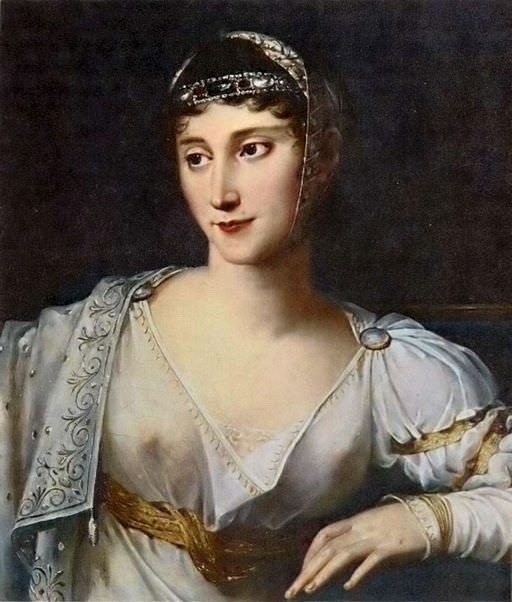
This is half-self-explanatory, really—just look at that statue she posed as Venus, the Roman equivalent of Aphrodite.
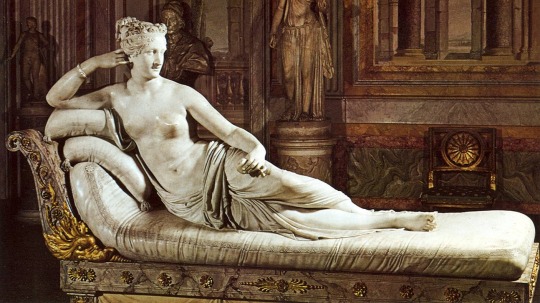
Pauline was famed for her beauty in her time, also a big chunk of scandals from her affairs (which bugs her big brother Napoleon, a lot). Nevertheless, despite her big spending habits and a great sexual appetite, she always helped Napoleon in some surprising ways (like she sold her house in Paris to the Duke of Wellington to get the funds for Napoleon).
Just like Aphrodite herself, Pauline harnessed her beauty very well. Thus, I rest my case.
4. Apollo - Joachim Murat or Emperor Franz Joseph I of Austria
(Warning: long content ahead)
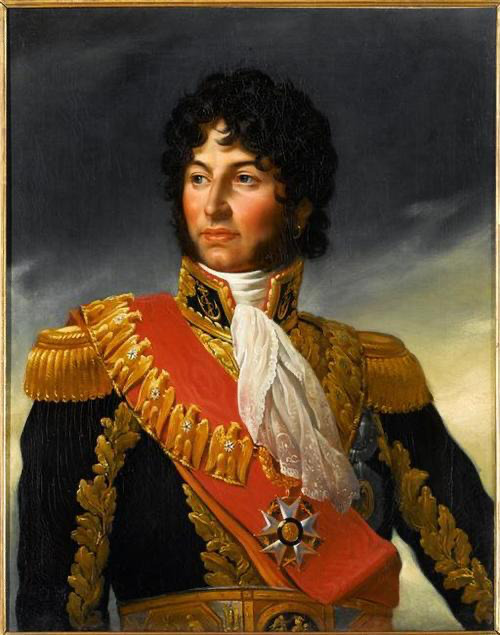
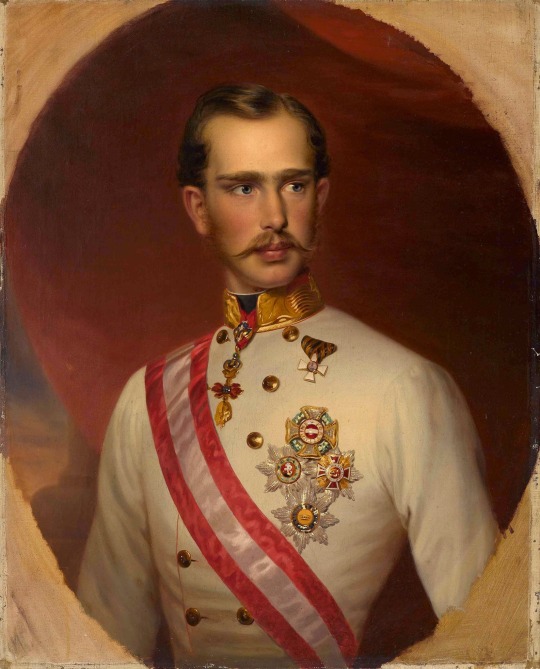
Firstly, let me briefly introduce them because you guys might not know them much.
Joachim Murat was a marshal of France, also one of Napoleon’s brother-in-law, grand duke of Berg and Cleves from 1806 to 1808 and the King of Naples from 1808 to 1815. After the wars, he attempted to escape yet was caught and executed in 1815 in Pizzo, Italy (if you have read of Alexandre Dumas’s “Famous Crimes” you might know him—by the way no one has cut his head off and sent it to that big nose King Ferdinand).
For those who have watched “Elisabeth” or the “Sissi” movies, you might know Franz Joseph I of Austria already but you might not know much about himself besides being the husband of the (in)famous Empress Sisi (ie. Empress Elisabeth of Austria). He was the Emperor of the Austria from 1848 to his death in 1916—one of the longest reigning European monarchs in history. During his reign, the empire had been through a lot of change, most notably, the creation of Austria-Hungary. Nevertheless, he was also the Emperor who started World War I and he died of old age in the midst of the Great War.
For Apollo, I’m not casting musicians because this is quite overdone. I rather want to shed a light to the other arts that he represented in Greco-Roman mythology. This makes me want to draw a parallel to Joachim Murat as he was also a great sucker of classical literature. Plus, he also was known to be a flamboyant dresser (his nickname was “the Dandy King” by the way), also the designer of the uniforms of the Neapolitan army (with an excessive amount of amaranth, perhaps his favourite colour). Really, everyone just sees him as a great flamboyant himbo but in reality, he’s iconically badass in the battlefield as the First Horseman of Europe. Well, also he’s known for being extremely good with women even though his wife Caroline was fierce as hell. So, in my opinion, he fits the image of Apollo that we know.
However, you guys might feel surprised why I picked Franz Joseph for Apollo. Well, he really... was a rather mediocre ruler in my opinion, and perhaps our most memorable image of him was the senile emperor who signed the declaration of war to Serbia. Nevertheless, he was a well-liked man among his subjects, at least to some old citizens of Austria-Hungary telling future generations. Besides, culture flourished in Vienna under his reign—with notable figures like Sigmund Freud, Ludwig Wittgenstein and Erwin Schrödinger. Despite the series of unfortunate events which made the empire started to crumble, Austria-Hungary arguably has its cultural importance in Europe. Sounds like what Apollo would do if he’s a ruler, somehow.
Well, enough of his political achievements, let’s talk about his private life... which was probably the actual reason why I picked him.
Enter Duchess Elisabeth in Bavaria, the Empress of Austria and Queen of Hungary, also known as Sisi.
On a side note, Marshal Louis-Alexandre Berthier of France, Prince of Neufchâtel and of Wargram, was Empress Sisi’s grand-uncle in-law via his marriage to Duchess Maria Elisabeth in Bavaria

Absolutely love Pia as Elisabeth in the musical so please don’t mind me using a gif from this :3 ((also, “Elisabeth” spoiler alert
Franz originally was to marry her sister Helene (nicknamed Néné), nevertheless, on the first meeting in Bad Ishl, he has fallen for the young Elisabeth, head over heels—making him defying his domineering mother, Archduchess Sophie, for the very first time. Elisabeth also liked him and did not expressed her refusal either, so they got married in St. Augustine’s Church in 29th April, 1854.
However, the marriage was not well. Sisi was not accustomed to the strict Austrian court especially Archduchess Sophie (also she was not really a fan of intimacy). Poor Franz was rather helpless in situations between his mother and his wife, and eventually, Sisi chose her freedom over her duty as Empress, traveling around the world. They two briefly went back together during the Austro-Hungarian compromise, yet she was constantly not there. Eventually, Sisi was assassinated by an anarchist named Luigi Lucheni during her stay in Geneva, Switzerland, and Franz was devastated over her death (“she will never know how much I love her”).
To Franz, he loved her so, but he really didn’t understand her needs. Even though he had countless mistresses and female companions in Vienna, he still missed his wife. I say, he was really unlucky when it comes to love. Like Apollo himself, he dated countless nymphs and humans, but a lot of his notable relationships did not have a good end. (Probably Cyrene was the most lucky one, yet she also has chosen to be left alone after mothering several children with Apollo.) For this, I picked Franz Joseph as Apollo.
5. Ares - Jean Lannes or Michel Ney
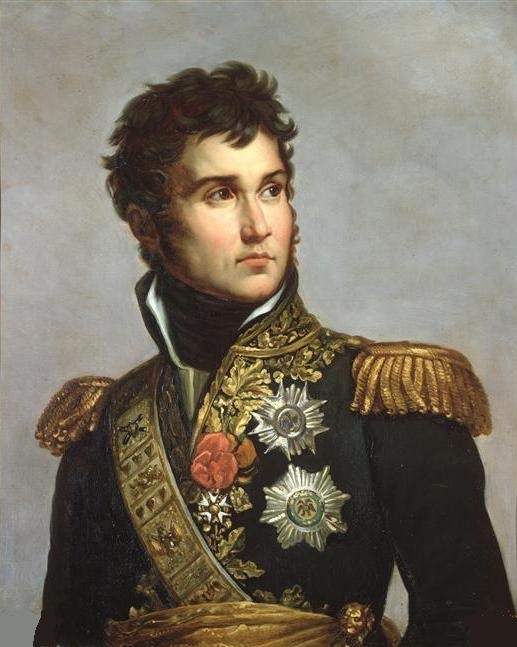
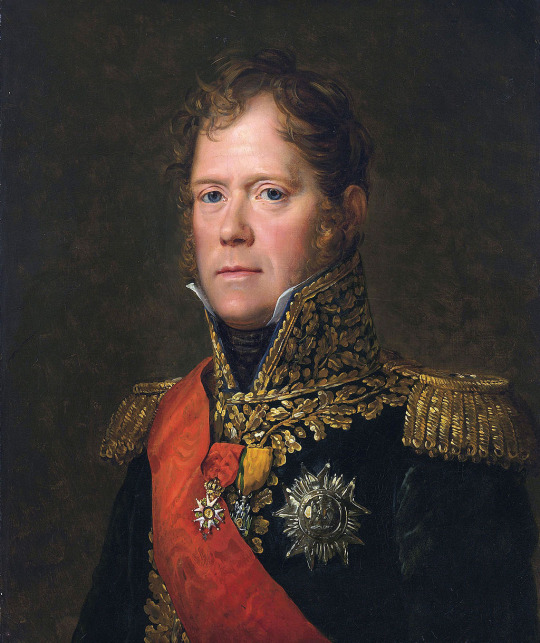
As usual, for those who don’t know much history, I shall briefly introduce my babeys these two great soldiers.
Jean Lannes was one of the marshals of Napoleon, known for being one of Napoleon’s closest friends and his fiery personality, and is considered one of the best marshals of the 1st French Empire. His finest moments including the Battle of Ratisbon in which he led his men to storm the well-guarded city with ladders (hence his nickname “ladder lord” in our very humble Napoleonic marshalate fandom :3). Sadly, he died of the wound he received in the battle of Aspern-Essling in 1809.
Michel Ney was also one of the marshals of Napoleon, known for his extreme valour (yep, he is known as the “Bravest of the Brave”). As you might know, he was one of the marshals who was in Waterloo, yet, his finest hour was during the retreat from Russia in the disasterous 1812. Sadly, he was arguably the most prominent victim of the White Terror under the second Bourbon restoration, executed in 1815 (**I am not accepting any kind of conspiracy theories of my babey survived and died in America😤).
Speaking of Ares, I have a lot of things to say (that’s my dad ;-; no jkjk). He is really not that bloodthirsty idiot who casually hates humans. Well, he’s more like a fiery dork and a man who was very faithful to his lovers, and fights very well (by the way also one of the best dads). So, the bois that come into my mind are automatically two of the most courageous marshals of France.
Lannes, if I have to get him a godly parent, it would definitely Ares. He resembled the god a lot (also I sometimes imagined Ares as a smol bean with dark hair), probably looks the most like Ares himself. He got that fiery temper, that faithfulness to his wife Louise, also being a very courageous fighter in the field—well he literally was like, “NO LEMME STORM DAT CITY *grabs ladder*”.

There you have it, my big bro our ladder lord Jean Lannes who can pull off a perfect Ares.
Ney is like a slightly introverted (and mature) version of an Ares person. You can guess his temper already through his famed auburn hair, and indeed despite his shy exterior his temper sometimes was a bit explosive, and a bit impatient (which was somehow one of his fatal flaws). He was a great fighter, known as a skilled swordsman in his youth. And you all know how brave he is in his famed epithet. Michel Ney is purely badass (and C U T E) you know (and he needs a lot of hugs because he has really been though a lot in the wars, and was a possible case of PTSD which was shown in his arguably suicidal behaviour during the battle of Waterloo). That’s why I casted him as the Greek god Ares OwO
//
And there you have it, my interpretations on the Greek gods via people in history. I originally would like to include more but somehow I realised that I have written too much about my picks. So, if you want to add more, reblog this post or tag me on the post you made on this topic (and please use the hashtag “mythical figures as historical people” so that I could look into your choices via the search bubble on this app🥺).
Last but not the least, I hope you all lovelies like this, also have learnt something new via my brief introductions on some historical people. Have a great day!
#greek mythology#finally some Greek mythology content#i hope you all don’t mind me overselling my bois#no shipping intended on the castings#this is from an ex-Hellenic devotee who had been in Classics class#Zeus#Hera#Aphrodite#Apollo#Ares#methods of procrastinating from university tasks and responsibilities#why am I still up in 2am I said I would get a proper sleep tonight for excessive headbanging to David Bowie for his birthday🌚#the relationship between Franz and Sisi got me sobbing all the time#Louis XIV#Catherine of Aragon#pauline bonaparte#joachim murat#franz joseph i#elisabeth of austria#elisabeth of bavaria#empress sisi#jean lannes#michel ney#mythical figures as historical people
93 notes
·
View notes
Text
Today marks the birthdays of two European princes: His Highness Prince Felix of Denmark’s 18th and His Royal Highness Prince George of Cambridge’s 7th.

Felix Henrik Valdemar Christian was born on 22 July 2002 at Rigshospitalet in Copenhagen. He is the younger of the two sons of HH Prince Joachim and his ex-wife Alexandra Manley, Countess of Frederiksborg. He was born a Prince of Denmark and became a Count of Monpezat in 2008, upon his grandmother Queen Margrethe II’s grant of the title to hers and Prince Henrik’s descendants.

George Alexander Louis was born on 22 July 2013 at St Mary’s Hospital in London. He is the eldest child and first son of TRH the Duke and Duchess of Cambridge. Prince George is currently 3rd in line to the throne, next to his grandfather the Prince of Wales and his father Prince William.
#denmark#united kingdom#glucksburg#windsor#birthday#birthdays#europe#royalty#prince felix#prince felix of denmark#prince george of cambridge#kingdom of denmark#cambridge#danish royals#british royals#brf#drf#danish royal family#british royal family#george alexander louis#nobility
28 notes
·
View notes
Photo


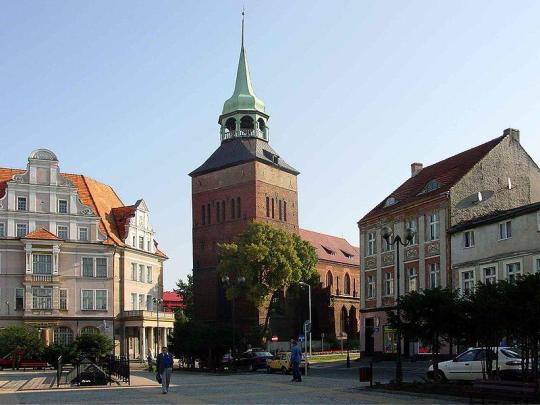


BIAŁOGARD / BELGARD stare miasto ciekawych ludzi 54°00′11″N 15°59′32″E
Witajcie przyjaciele. Witajcie wszyscy wędrowcy i powsinogi. Dzień mamy coraz dłuższy, słońca coraz więcej. Po tym jak zima niespodziewanie dała nam się we znaki, wszem i wobec ogłaszając " Jeszcze jestem i będę was co jakiś czas odwiedzała bo nikt mnie jeszcze z rejestru pór roku nie wykreślił i do archiwum nie odstawił" zatęskniliśmy za ciepłym wiatrem i gorącym słońcem. I oto nadchodzą te dni. Niedługo wiosna, majówka a potem gorące lato. Warto więc zaplanować nasze wakacje. Odkurzyć i przewietrzyć przyczepy kempingowe i kampery, przejrzeć i może naprawić namioty, sprawdzić sprzęt biwakowy. Przygotować samochody, motocykle, rowery i dobre buty - wszystko zależy od tego czym będziemy się poruszać. Czasy są mało ciekawe z wiadomych względów. Turystyka indywidualna zdaje się być najbezpieczniejsza a jednocześnie najciekawsza. Pomyślałem więc że warto Wam zaproponować kilka interesujących szlaków turystycznych. Można tam pojechać i spędzić weekend albo urządzić sobie turystyczny rajd. Przemieszczając się od jednej miejscowości do drugiej zobaczycie miejsca do których pewnie nigdy byście nie zawędrowali/ły. Będą one szczególnie atrakcyjne dla zmotoryzowanych i tych którzy/które nie boją się nocować na łonie natury (namiot) ewentualnie korzystać z Agroturystyki. Wiadomo że najbardziej usatysfakcjonowani będą właściciele kamperów i przyczep kempingowych. Pamiętajmy też że jeżdżąc po Polsce, korzystając z agroturystyki, pól namiotowych, biwaków, małej gastronomii pomagamy przetrwać zarazę polskim przedsiębiorcom i polskim rolnikom. Bądźmy ze sobą solidarni i choćby w ten sposób pomagajmy sobie. Musimy to robić sami bo tzw. rząd nam nie pomoże. Pamiętajmy też o tym że nie jesteśmy sami. Zostawmy miejsce miejsce w którym obozowaliśmy w takim stanie w jaki sami chcielibyśmy je zastać.

Będę Wam co tydzień prezentował 2-3 miejsca gdzie warto pojechać. Spróbuję Was zainteresować. Wrzucę kilka zdjęć byście poczuli chęć pojechania tam, byście poczuli przedsmak przygody która być może tam na Was czeka. Kolejność postów nie będzie miała żadnego znaczenia. Gdzie, kiedy i w jakiej kolejności się udacie? To pozostawiam Waszej inicjatywie.

Dziś zapraszam was do Białogardu.
Pierwsze wzmianki historyczne o Białogardzie znajdziemy już w kronikach u Galla Anonima – miasto królewskie i znakomite, zwane Białym (łac. Urbus regia et egregia. Alba nomine). Gród został zdobyty dwukrotnie w 1102 i 1107 roku przez Bolesława III Krzywoustego. W 1124 roku przez kilka dni przebywał w grodzie biskup Otton z Bambergu. W 1289 władał nim książę Przybysław, a w dokumencie zapisano, że Białogard położony jest w Kaszubii (in Cassubia). 2 sierpnia 1299 roku książę Bogusław IV nadał istniejącej już osadzie przywilej lokacyjny według zasad regulowanych przez Prawo lubeckie. Na XIV wiek przypada wzrost znaczenia miasta w życiu gospodarczym Pomorza Zachodniego. W roku 1307 nadano miastu prawo składu na wszystkie towary. W roku 1315 książę Warcisław IV przeniósł z Anklam do Białogardu rezydencję książęcą. Od roku 1386 Białogard należał do Związku Hanzeatyckiego. W wieku XV i XVI Białogard dzielił zmienne losy Pomorza Zachodniego, związane z rywalizacją książąt pomorskich z Brandenburgią. W 1469 r. miał miejsce zatarg między Białogardem a Świdwinem, który przeszedł do historii jako tzw. wojna o krowę. Upadek znaczenia miasta związany był z okresem wojny trzydziestoletniej, kiedy to liczba ludności spadła o dwie trzecie, a miasto popadło w długi z powodu konieczności utrzymywania garnizonów wojsk cesarskich i szwedzkich. Od kończącego wojnę Pokoju westfalskiego w roku 1648 Białogard wchodził w skład Brandenburgii. Od 1714 roku Białogard był miastem garnizonowym. Od połowy XIX wieku nastąpił rozwój przemysłu, głównie przetwórczego opartego na miejscowych produktach i surowcach rolno-leśnych.

W połowie XIX wieku Białogard otrzymał też połączenie kolejowe ze Szczecinem, Koszalinem i Kołobrzegiem (1859) oraz Szczecinkiem (1878). W 1911 roku uruchomiono dwie linie kolei wąskotorowej: Białogard-Bobolice oraz Białogard-Rarwino (Białogardzka Kolej Dojazdowa). W latach 1900–1901 wybudowano nowe koszary (ul. Kołobrzeska). Następne koszary oraz szpital wojskowy powstały w 2. połowie lat 30. XX wieku. W 1939 roku stacjonowały tu pułki zmechanizowane 32 dywizji Wermachtu. W okresie II wojny światowej na terenie miasta i w jego okolicach zlokalizowano kilka obozów dla robotników przymusowych i jeńców wojennych. Białogard został zdobyty w dniu 5 marca 1945 roku przez oddziały radzieckie 19 Armii, 1 Armii Pancernej, 2 Samodzielnego Korpusu Kawalerii Gwardii oraz 1 Armii Wojska Polskiego. Po wojnie Białogard stał się siedzibą powiatu, obejmującego swoim zasięgiem tereny przedwojennego powiatu białogardzko-świdwińskiego (Kreis Belgard-Schievelbein).
W latach 50. i 60. XX wieku, m.in. w następstwie braku ujęcia w tzw. planie 6-letnim, nastąpił regres przemysłu, który rozwijał się tylko przez rozbudowę i modernizację istniejących zakładów. W latach 70. XX wieku Białogard był znaczącym ośrodkiem przemysłu elektronicznego (filia Warszawskich Zakładów Radiowych „RAWAR”, przekształcona następnie w nowy zakład „Unitra-Eltra”); firma pod nazwą „Unicon” funkcjonuje do dziś. W okolicy Białogardu, niedaleko wsi Podborsko pod Tychowem znajdowała się jednostka wojskowa Armii Radzieckiej na terenie której przechowywana była Baza broni atomowej obecnie zamieniona na muzeum. Będzie o tym miejscu oddzielny post. Do 1991 roku stacjonowały tu 3 znaczne zgrupowania jednostek Północnej Grupy Wojsk Armii Radzieckiej – obecnie dawne koszary są wyremontowane i zagospodarowane (mieszkania, szkoły, urzędy, przedsiębiorstwa).
Zabytki Białogardu:
śródmieście miasta – stare miasto
kościół parafialny pod wezwaniem Narodzenia NMP, gotycki z 1310 r. do XIX wieku, rzymskokatolicki należący do dekanatu Białogard, diecezji koszalińsko-kołobrzeskiej, metropolii szczecińsko-kamieńskiej
kościół filialny pod wezwaniem św. Jerzego, ul. Świdwińska, wybudowany około XIV wieku na starych fundamentach dawnej pogańskiej świątyni. Pierwotnie była to kaplica i dom trędowatych położony poza murami miasta. Przebudowany w XV/XVI wieku. Murowana, ceglana budowla w układzie wendyjskim z elementami gotyckimi wznosi się na planie prostokąta. Kościół kilkakrotnie był niszczony przez pożary. w roku 1858 przeszedł gruntowny remont, podczas którego został też znacznie przebudowany. Obecny wygląd pochodzi z przełomu XIX i XX wieku. Dzisiaj jest to filiał rzymskokatolicki należący do parafii ewangelicko-augsburskiej Jezusa Dobrego Pasterza w Koszalinie, diecezji pomorsko-wielkopolskiej
dawny cmentarz ewangelicki
pozostałości murów obronnych, ul. Matejki, z XIV/XV wiek wieku
Brama Wysoka, inaczej Połczyńska, ul. Grottgera; zbudowana łącznie z murami miejskimi w początkach XIV wieku. Murowana budowla z cegły, na planie prostokąta stoi na fundamencie kamiennym. Brama ma dwie kondygnacje, i ostrołukowy przejazd. Fortyfikacja zachowała się jako jedyna z dwóch istniejących dawniej. Do końca XIX wieku służyła jako areszt miejski i mieszkanie dozorcy. Później, od roku użytkowana była przez Muzeum Regionalne. Obecnie jest siedzibą białogardzkich artystów
piwnice zamku, ul. Płowiecka 3, z XVIII wiek wieku
ratusz, pl. Wolności 5, Rynek, z pierwszej połowy XIX wieku
spichlerz, obecnie magazyn, ul. Piłsudskiego 25, szachulcowo-murowany, z końca XVIII wieku, w połowie XIX wiek wieku, budynek przemysłowy
dom z dwiema oficynami, ul. Najświętszej Marii Panny 3, z 1880
dom, obecnie bank PKO, pl. Wolności 17, z 1910
cmentarz żydowski
Osoby urodzone i związane z Białogardem
Zbigniew Baranowski (ur. 1991) – olimpijczyk z Rio de Janeiro w zapasach w stylu wolnym
Dariusz Białkowski (ur. 1970) – polski kajakarz, dwukrotny brązowy medalista olimpijskiJerzy Borowczak (ur. 1957) – polityk i działacz związkowy, poseł na Sejm III kadencji
Otto Busse (1867–1922) – patolog
Anna Chitro (ur. 1956) – polska aktorka teatralna i filmowa
Maximilian Grävell (1781–1860) – prawnik
Ludwig Ferdinand Hesse (1795–1876) – architekt
Lech M. Jakób (ur. 1953) – pisarz
księżna Anna Komorowska (ur. 1946) – matka Matyldy d’Udekem d’Acoz, żony Filipa I Koburga, króla Belgów
Jacek Kosmalski (ur. 1976) – polski piłkarz grający w Polonii Warszawa
Aleksander Kwaśniewski (ur. 1954) – prezydent Rzeczypospolitej Polskiej w latach 1995–2005
prof. US dr hab. Christian Lis (ur. 1973) - polski ekonomista, dr hab. nauk ekonomicznych, profesor nadzwyczajny Instytutu Ekonomii i Finansów Uniwersytetu Szczecińskiego
.Ewald von Massow (1869–1942) – niemiecki generałHans Martin Schaller (1923–2005) – niemiecki historyk
Damian Skoczyk (ur. 1995) – polski piosenkarz
Dariusz Szubert (ur. 1970) – polski piłkarz, srebrny medalista olimpijski z 1992
Joachim Utech (1889–1960) – rzeźbiarz
Andrzej Wasilewicz (1951–2016) – polski aktor Teatru Powszechnego w Warszawie
Erika Fuchs (1906‒2005) – tłumaczka; mieszkała w Białogardzie
Josquinus ab Holtzen (?‒1657) – kompozytor, kantor białogardzki
Marcin Jurecki (1976‒2008) – polski zapaśnik, wielokrotny reprezentant Polski w stylu wolnym; mieszkał w Białogardzie
Leon Mroczkiewicz (1900‒1971) – profesor, leśnik; mieszkał w Białogardzie
Czesław Niemen (1939‒2004) – kompozytor, multiinstrumentalista, piosenkarz i autor tekstów piosenek; w młodości mieszkał w Białogardzie
Jeśli podoba Wam się tematyka moich blogów (after the reset) i (MĘSKI BIGOS), uważacie moje teksty za interesujące to proszę o polubienie, lajkujcie i subskrybujcie (to wszystko przez te logarytmy). Z góry dziękuję i pozdrawiam.
#Białogard #Belgard #Aleksander #Kwaśniewski #prezydent #król #Belgia #pomorze #muzeum #vanlife #kamper #rowerem #buty #turystyka #Niemen
2 notes
·
View notes
Note
Dobra, daj tę listę nieoczywistych przyczyn upadku powstania
Proszę Państwa! Oto nieoficjalna i bardzo subiektywna lista hermetycznych insajd dżołków przyczyn upadku powstania listopadowego, o których nie uczono was w szkole, a które objawiły przede mną lata spędzone na czytaniu wikipedii oraz pamiętników z epoki:
1. W grudniu 1830 niestety nikt nie wziął na poważnie całkowicie poważnej propozycji w.k. Konstantego, żeby napisać do cara, że właściwie to nie ma żadnego powstania, pfffff, podłe plotki, w warszawie spokój, a co tam u ciebie braciszku? xoxo Konstanty
1.2 Nikt też niestety nie wpadł na to, na co wpadł Konstanty w Nocy listopadowej Wyspiańskiego :/ *
2. 29 listopada, aby dać sygnał do rozpoczęcia powstania, oprócz osławionego browara na Solcu podpalono również kręgielnię w okolicach Łazienek. Też bym się nie chciała przyłączyć do powstańców, jakby mi już na starcie podpalili browar i kręgielnię.
3. Mój ulubiony szef sztabu rosyjskiego K.W. von Toll zwany przeze mnie Rekinkiem no wyguglajcie go jaki jest kjut co prawda popisowo wnerwiał Dybicza, utrudniając mu kierowanie kampanią, ale po śmierci Dybicza z Paskiewiczem dogadywał się już jakoś odrobinkę lepiej i jemu za bardzo nie przeszkadzał. I nawet pozwolił nazwać wymyślony przez siebie trik na pokonanie Polakuf "manewrem Paskiewicza". Rekinku jak mogłeś :((
4. Iwan Paskiewicz podczas oblężenia Warszawy oberwał kulą w rękę zamiast w gupi ryj, w efekcie czego resztą nawalanki kierowały ze strony rosyjskiej osoby bardziej kompetentne od niego.
5. Jak Joachim Lelewel pobił się na posiedzeniu rządu z Adamem Jerzym Czartoryskim to niewystarczająco mocno mu przyłożył.**
Honourable mention #1: Paweł Jerzmanowski, jakkolwiek zarąbiaszczym szwoleżerem za czasów napoleońskich by nie był, niezbyt umiał organizować przemyt broni :(
Honourable mention #2: "MOSKALE RŻNĄ NASZYCH W ŁAZIENKACH" to strasznie głupia rzecz do skandowania w nocy.
*tzn. na obranie Konstantego krulem powstaniującej Polski
** Nie znoszę AJC, więc mam święte prawo obwiniać go o wszystko. Jakby mu Lelewel mocniej dał po gębie, to powstanie tylko by na tym skorzystało, fight me
22 notes
·
View notes
Text
B. Tvifvelaktiga original, d. v. s. från Prag komna taflor, som drottningen här kvarlämnade, men som nu äro försvunna och om äktheten af hvilkas konstnärsnamn man därför icke med bestämd- het kan yttra sig. a) Italienare. Correggio (jfr n. i). 1 59. Själfporträtt. 160. Ya\ fänrik. Paolo ]^ero)iese (jfr n. 5). 161. Själfporträtt. Pordeno7u\ ven. skol., f. 1483, d. 1539. 162. Själfporträtt. 163. V^enus och Amor. Lionardo da ]'inci, flor. skol., f. 1452, d. 1 519. 164. Dam med en liten hvit hund. 165. Kvinnoporträtt. Raffaello, f. 1483, d. 1520. 166. Fiolspelare. 167. Dam, som häller i sitt här. 168. Mansporträtt. 169. Kvinnoporträtt. Andrea del Sarto (jfr n. 24). 160. Maria med barnet. 171. Judit och Holofernes. Perirw del \ aga. rom. skol., f. 1499, d. 1547. 172. Orfeus, beklädd med en hud. 173. Neptun. 174. Aktenskapsbryterskan. 175. Gumma med en liten gosse och en flicka. G ill Ii o Roviano, (jfr n. 18). 176. Pan och Syrinx. — 115 — Giusippc Cisari. kallad Cavaliere d'Arpiiio, rom. skol., d. 1640. 177. Ett bad. 178. Venus, klippande .sina naglar. Giovanni Bcllini. ven. skol., d. 1546. 179. Venus och Amor. Giorgionc. egentl. Giorgio BaibarcUi. ven. skol., f. senast 1477, d. 1510. 180. Porträtt. Tisiano Vecellio (jtV n. 40). 181. Maria med barnet. 1182. Loth och hans döttrar. Fa I nia \'cccIiio. f. 1 480, d. 1528. 183. Calistos felsteg. 184. Paris' dom. 183. Den hel. Michacl. Gaudoizio Ferrari, milan, skol., f. omkr. 1 47 1, d. 1546. 186. Dam, som häller i sitt hår. Leandro Bassano, ven. skol., f. 1558, d. 1623. 187. Själfporträtt. 188. Porträtt af Jacopo Bassano. 189. Magdalena. Francesco Sa/viati, flor. skol., f 1510, d. 1563. 190. Själfporträtt. Tintorctto, egentl. Jacopo Rolnisti, ven. .skol., f. 1419, d. 1594. 191. Porträtt af Michelangiolo. 192. Allegori (»Wie die Natur in den Wolken getragen wirdt, Vndter Ir das fruchtbare Krdtreich»). 193. Jupiter och Semele. 194. Musicerande unga kvinnor. 195. Tundalas' syn. Cornclio J^icari. 196. Porträtt af Lionardo da Vinci. 197. Rafifaello. Okända mästare. 198. Porträtt af Alessandro Vittoria. 199. » Guglielmo della Porta. 200. • » Gianbattista della Potta. — u6 — 201. Poträtt af Giovanni Contarini. 202. » » Luca Cambiaso. Paris Bordonc, ven. skol., f. 1500, d. 1571. 203. Dam med en liten brun hund. Domenico Campagnola, ven. skol., f. omkr. 1484. 204. Lucretia. Jacopo Bassano, ven. skol., f. 15 10, d. 1592. 205. Kristi utförande. 206. Abraham drager ur landet. Paolo Lomazzo, milan, skol., f. 1538, d. 1600. 207. »En, som blåser ut ett ljus». Caravaggio, egentl. Michclangiolo Ameriglii, rom. skol., f. 1569, d. 1609. 208. Josef och Potifars hustru. Ghiseppe Arciniboldo (jfr. n. 79). 209-210. Porträtt, sammansatta af frukter, fåglar och fiskar. Ceresi^). 211. Bad med nakna kvinnor. Caiiipo Crcmoni 212. Eiskmarknad. b) Tyskar. Hans von Achen, f. 1552, d. 1615. 213- Danaé. 214. Lucretia. 215- Lucretia och Tarquinius. 216. Pluto och Proserpina. 217. Venus, naken. 218. Diana. 219. Diana med sina jungfrur. 220. Judit och Holofernes. 22 1 . Pan och Syrinx. 222. Kleopatra. 223. Dädalus med örnen. ^). 224. Herkules, triumferande öfver Lasten 225. Dam, speglande sig. 1) Tydligen förvrängdt namn 2) Förmodligen menas; Ganynedes. — 117 — JosepJi Hemz, f. 1564, d. 1609, 226. Proserpinas bortröfvande. 227. Jupiter, dödande Faéton med blixten. 228. Pan och satyrer." Jeretnias Gunt/ier, verks. omkr. 161 2. 229. Porträtt, helfig., af kejsar Rudolf II. 230. Venus och Amor. 231. Trätafla, med å ena sidan en örn, å den andra ett porträtt. Mattliäus Go7idolach, d. 1653. 232. Venus, sofvande. 233. En »Mathematica» . 234. Kvinnoporträtt. Ulrich Steyeni. 235. Perspektiv med ett bollspel. Ferdinand von Eisoi. 236. En manlig och en kvinnlig narr. Michael Sc/ine?dcr. 237. Stilleben, fiskar. 238. » foglar. 239- » fiskar och snäckor. 240. » frukter vid ljussken. 241- » frukoststycke Di et lic k Ra jfeustei)u •>: 242. Sabinskornas bortröfvande. Johan RottenJianimer, f. 1564, d. 1623. 243. Maria med barnet och Josef. 244. Gudarnas gästabud. 245. »Wie man Porseum (!) Zu einem Gott machte». 246. Sabinskornas bortröfvande. 247. Amazoner. Adam Elsheimer, f. 1578, d. omkr. 1620. 248. Den unge Tobias. ChristopJi Schzvarz, f. 1550, d. omkr. 1597. 249. Sabinskornas bortröfvande. 250. »Eine heidnisch Jurament». I) Vid denna tafla kallas artisten Frans Schneider, men kan dock ej gärna vara identisk med flamländaren Fr^ns Snijders. — ii8 — 251. »Die Division (!) vom Propheten Ezechiel». Okänd mästare. 252. Kejsar Maximilian pä lijortjakt i Tyrolen. Hans Baldimg Grien, f. mellan 1476 och 1480, d. 1545. 253. Adam och Eva. Ruprecht Heller (jfr n. 93). 254. Paris' dom. 255. Landskap med den helige Franciscus. Lucas Cranach d. ä. (jfr n. 88). 256. Venus. 257. Tre barn, lekande med en kula '). 258. Adam och Eva =). 259. Porträtt af Knipperdolling. 260. Herodias. 261. Den hel. Antonii frestelse. 262. Herkules, spinnande '). Okänd mästare. 263. Kejsar Maximilian och kurfursten af Sachsen på hjortjakt i vattnet. Carl Helmer(er) 3). 264. »Eine Landtschafft mit einem Romanischen Gebew». Israel Metra 3). 265. Triptyg med Paris' dom, Batseba samt Josef och Potifars hustru. H i sabel Peom 3). 266. Huru drottningen af Saba förleder Salomo till afguderi. d) Nederländare. Roger van der Weyden, f omkr. 1400, d. 1464. 267. Kristi födelse. Lucas van Leyden, f. omkring 1494, d. 1533. 268. Huru jungfrurna införa David i Jerusalem. 269. Salomos dom. 270. Konungarnas tillbedjan. 1) Ett ex., men väl ej detsamma, i Köbenhavns museum. 2) Två eller tre ex. funnos af denna tafla, däraf, som ofvan nämnts, ett troligen befinner sig i Linköpings museum. 3) Troligen förvrängda namn. — 119 — Jan Gossacvt, kallad Mabiisc, f. omkr. 1470, d. 1541. 27 1 . Danaé '). Jan van Hem ess en (jfr n. 105). 272. Lucretia och Tarquinius. -73- Isaak välsignar Jakob. — Kin furncnics stuck». 274. Susanna. 275. Karl med en korg med matvaror. 276. En man och en kvinna med öppen mun. 277. »Ein furnemes stiick mit drey Eiguren». 278. En i en skog sittande hare. — »Gar schön gemalt Marteit va7i Hecmskerck, f. 1498, d. 1574. 279. Syndafloden. 280. Yttersta domen. 281. Qvirinalska kullen. Cornelis Cornelisz. %'an Haarlein (jfr n. 152). 282. Nakna människor, som slä ihjäl hvarandra. 283. Amors biläger. Frans Floris (jfr n. 30). 284. Adam och I^va. 285. » » » lekande med Kain och Abel. 286. Amors biläger. 287. Galateas triumftåg. 288. En »Musica». Lambeit Lonibaid, f 1505, d. 1606. 289. Maria med barnet och den hel. Elisabet. 290.j S:t Petrus på hafvet. Hubert (r) Goltzius, f. 1526, d. 1583. 291. Kristi törnekröning. Antonis Aloor, f. 1 512, d. omkr. 1576. 292. Naken Mars. Mårten va7i Cleef (d. y. }) 293- En narr med en bulle i handen. 294. Belsasars gästabud. 295- Utsikt af Colosseum. Georg van Cleef. 296. Ett nattligt upptåg. Ett ex. i Miinchens pinakothek, men väl ej samma. — 120 — 297- Kristus uppenbarar sig för Petrus, på skeppet. Willem de Vos. 298. Venus speglande sig, medan Amor ser på. 299. Naken kvinna, hvilande på en bädd. Roland dc Vos. 300. Naken kvinna i badet. Jakob de Backer. f. 1562, d. 1637. 301. Den hel. familjen. 302. Kvinnoporträtt. 303. »Fides mit den temporibus». Crispijn van den Broeck, f 1524, d. om kr. 1588. 304. Nattvarden. Peeter van^ der Borcht, f omkr. 1540, d. 1608. 305. Syndafloden. 306. Noaks ark Gillis Sadeler, f. omkr. 1575, d. 1629. 307. >Der Pragerischer Saal.» Frans Badens, i. 1571, d. 1620. 308. Interiör med en dam. Jerooin Bosch, f omkr. 1450, d. 15 18. 309. Den hel. Antonii frestelse. 310. Den hel. Kristoffer går öfver hafvet. 311. Yttersta domen. 312. Den hel. Martin bland tiggarna. 313. Vanitas (Krucifi.x och matvaror). Peeter Brueghel d. ä., d. 1569. 314. Tre sofvande män i Schlarafifenland =). 315. Fåraherde. 316. Marknad. 317. Den hel. Jöran. Peeter Brueghel d. y. (jfr. n. 117). 318. Bonddans. 319. Elefant, som beskådas af mycket folk. Hans Bal (jfr n. 102). 1) Jag erinrar mig svagt eu tafla med samma motiv, på hvilken frih. Eiiiaiuicl Ceder- ström vid ett gemensamt besök pä Skokloster för iiägra är sedan gjorde mig uppmärksam. 2) Det enda nu kända ex. af denna tafla tillhör en hr von Kauffmann i Berlin. — 121 — 320. Bonddans. 321. Landskap med fyra blinda, som leda hvarandra ' Peeter Schoubrocck, d. före 1609. 322. Landskap med en eldsvåda. David Vinckbooiis, f. 1578, d. 1629. 323. Landskap med en väderkvarn. Michacl Coxic, f. 1499, d. 1592., 324. Venus och Adonis. » Vinceitz van Atitorff* '. 325. Kristi födelse. Frans de Åloor. 326. Flora i trädgården. Frans Poinims (d. ä..^ f. 1545, d. 1581). 327. Paris' dom. Gillis Cöignet (jfr n. 113). 328. Badande kvinnor. 329. » s Mårten de Vos (jfr n. iii). 330. Salomos dom. 331. Isaak och Jakob. 332. Susanna. OtJio van Ve en (jfr n. 104). 333. Sabinskornas bortröfvande. Abraham Janssens d. ä., f. 1575, d. 1632. 334. Dygden bekämpande Lasten. 335. »Contemplatio». Hendrik von Baleit d. ä., {. 1575, d. 1632. 336. Paris' dom. 337. Badande kvinnor. Frans Franc k en d. ä., f. 1542, d. 1616. 338. Pluto och Proserpina. 339. Öfverfall på landsvägen. Auibrosms Francken (d. ä.?, f. 1544, d. 1618). 340. Marknadsscen. David Teniers d. ä., f. 1582, d. 1649. 341. Den hel. Cecilia. i) Ägdes senare af gr. Magnus De la Gardie. Hendrik de Clerck (jfr n:r 114). 342. »Hoelzeit der Götter». Herri iiict de Bles, d. omkr. 1550. 343. Loth och hans döttrar. 344. S:t Petrus går på vattnet. 345. Den hel. Hieronymus. 346. Eldsvåda. 347. Sofvande hjort i en skog. Joachim Patinier, d. 1524. 348. Bonde och bondkvinna. Jacob Grimmer, f. omkr. 1526, d. 1 590. 349. Skeppsbrott. 350. Landskap. Gillis van Coninxloo (d. y.:, f. 1544, d. eft. 1604). 351. Landskap. Mårten van Valckadwnh, f. 1542, d. 1620. 3,52. Landskap med Jakob och Esau. Lucas van ValckcnborcJi (jfr n. 119). 353. Den hel. Egidius i öknen. Pamvel Bril, f. 1556, d. 1626. 354. Flykten till Egypten Gilles Mostart (jfr n. 107). 355. Landskap med månsken. 366. Eldsvåda, nattstycke. 367. »Ein perspektivischer Tempel bei Nacht». Roelant Savery, f. 1576, d. 1639. 368. Orfeus bland de vilda djuren. 369. Jägare med en hund; där bredvid ett stort vildsvinshufvud. 370. Fruktstycke. 371. Venus och Amor, hvilande. 371. Hafsfiskar. 372. Hvit korp. 373'376- Fyra landskap. Jan Briieghel d. ä., f. 1568, d. 1625. 377. Landskap. i) Kristina hade i Rom en sädan tafla af Bril, men den synes ha inköpts först där. — 123 — Hendrik Vrooiit, f. före 15 So, d. 1640. 378. Fartyg i storm AhraJiam Bloemart, f. 1564, d. 1658. 379. Köksinteriör. 380. » IV. Taflor, tagna i Miinchen, hvilka drottningen vid sin afresa från Sverige kvarlämnade. Lucas Cranacli d. ii., (jfr n. 88). 381. Penning-underhandling. Nu i Nationahiiuseuin. Jörg Breii d. ii., f. före 1480, d. 1536. 382. Lucretias historia. Nu i Sclilcisslichii, Bayern. 383. Susanna =). » » nuiscet i Augslmrg. Ludzvig Rcfingcr, verks, på 1530-talet. 384. Horatius Cocles. » » Natioualinuseum. 385. Manlius Torquatos » » » Abraham Scliöpfer, verksam på 1530-talet. 386. Mucius Scaivola. Nu i Natioiialiiinscuiu . Hans Schöpfer d. ä., verks, i 531- 1564. 387. Paris' dom. Nu i Nationalmuseum. V. Taflor, som drottningen fått af residenten Pieter Spiering, men före sin afresa återsände till hans dödsbo i Haag. Gerrit Don, f. 161 3, d. 1675. 388. Spetsknypplerskan. 1864 uppbrunnen i Rotterdam. 389. Gumma, som skalar äpplen. Tillhör nu hr O. I luldschinsky, Berlin. 390. Gubbe med en penna i handen. Nu på Lutonhousc, England. 391. Violinspelaren. Nu i Bridgewater Gallery, London. 392. Liten gosse, en piga och en som spinner. 393- Piga. som hackar kål. i) Troligen den tafla som nu tillhör statsgeologen hr Axel Lindström, Stockholm, a) Trol. af någon annan, med Breu besläktad artist. — 124 — 394- Gumma med en bok och en spinnrock. 395. Gubbe med ett timglas. 396. Munk med bok och crucifix.
2 notes
·
View notes
Photo

Collaborator 064: Alkebulan w/ Mistah Rapsey on the B-side
Presenting SUN FAM Manu’s guestmix for the Collaborator Series with Mistah Rapsey on the b-side. Last summer we were able to cross paths in Montreal after being SoundCloud homies for years, so it’s great to get him featured in the series too.
🌞 instagram 🌿 twitter 🌞 soundcloud 🌿
a-side: Alkebulan 1. Action Bronson - Prince Charming 2. Aywy - Quiet Storm 3. Kaelin Ellis - Mighty Fine (Lady Remix) 4. Mo Vibez - Brazilian Blunts 5. Thundercat - Them Changes (Jael Remix) 6. Stevo - Interlude 7. Gazpacho - Y U NO MAH LOVAH 8. Like - Ooodoov 9. Dpat & Atu - Beat 1 10. Wayne Valentine - Lovelies 11. Swarvy - Jonah on Keys 12. Wayne Valentine - Brewin 13. J.L.L - Zelda 14. Swarvy - Lesson to Julian 15. Eric Lau - Training 16. Eric Lau- Righteous 17. Erykah Badu - Telephone (Freddie Joachim remix)
b-side: Mistah Rapsey 1. Dr. Who Dat? - March To Viberia 2. Kali Uchis - Body Language [Prod. by Om'Mas Keith & Thundercat] 3. Swarvy - Greatjab 4. Duncan Gerow - Selfish (Madlib x Kanye) 5. Wayne Valentine - sunday_flip 6. Mo Vibez - These Days Pass Too Fast 7. j^p^n - grace. [] 8. Frang G - Moonchild (Remix) 9. AJMW - Need Something 10. NAMELESS - Illest Vibe 11. ShunGu - Mocambo 12. Phoelix - Ice Cream (feat. Elton Aura) 13. chambry - its not over yet 14. Howie Lee - Yrmt (feat. I Am Kaiju) (NeguimBeats Remix) 15. Wun Two - City Sleeps 16. Curren$y, Freddie Gibbs & The Alchemist - New Thangs 17. Ohbliv - Gawdhour
Follow Staying Underground on SoundCloud.
#Mistah Rapsey#Collaborator Series#Alkebulan#Staying Underground#tracklist#Brazil#Action Bronson#Aywy#Kaelin Ellis#Mo Vibez#Thundercat#Jael#Stevo#Gazpacho#Like#Dpat#Atu#Wayne Valentine#Swarvy#J.L.L.#Eric Lau#Freddie Joachim#Erykah Badu#Dr. Who Dat?#Kali Uchis#Om'Mas Keith#Duncan Gerow#Madlib#Kanye#j^p^n
2 notes
·
View notes
Photo
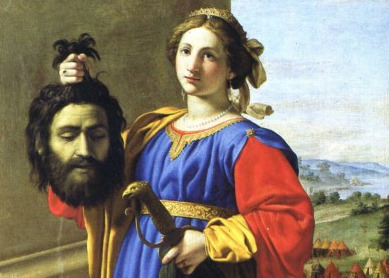
THE BOOK OF JUDITH* - From The Douay-Rheims Bible - Latin Vulgate
Chapter 5
INTRODUCTION.
The sacred writer of this Book is generally believed to be the high priest Eliachim, (called also Joachim.) The transactions herein related, most probably happened in his days, and in the reign of Manasses, after his repentance and return from captivity. It takes its name from that illustrious woman, by whose virtue and fortitude, armed with prayer, the children of Israel were preserved from the destruction threatened them by Holofernes and his great army. It finishes with her canticle of thanksgiving to God. Ch. --- He was a chief officer at court, under Ezechias, (4 K. xviii. 18. H.) before he was high priest, assuming his father Helchias's name. Many suppose that he was the author of this Book, as Josephus informs us that the priests recorded the most remarkable transactions. But this would prove that they wrote all the histories of the Bible. S. Jerom (in Agg. i. 6.) seems to believe that Judith left these memoirs. Yet we have no certain proof of the author. Josephus passes over this history, as he professed to exhibit only the Heb. books. Ant. x. 11. Prol. &c. S. Jerom doubts not but this was written in Chaldee, from which language he translated it; unless he caused it to be first explained to him in Heb. as he did the Book of Tobias. C. --- He might, however, have attained sufficient knowledge of the former language, which is so like the Hebrew, before he undertook this work. H. --- He professes to give "the sense," rather than a verbal translation. The Greek must have been taken from another copy, and is followed by the Syriac, in which we find some passages more exact than in the present Greek copies. The original is entirely lost. It might have removed many difficulties. Those however which are started by our adversaries, are not unanswerable. Grotius would suppose that this work is only a parable, representing the state of the Jewish church under the persecution of Epiphanes. But this singular notion has no foundation; and if it had, the authenticity of the Book would not be endangered, as the parable both of the Old and New Testament are certainly true, and written by inspiration. C. --- Luther styles it a poetical comedy; (Pref. et Sympos. 29.) but both Jews and Christians have esteemed it as a true history: (W.) and this innovator (H.) allows, that "the Book is beautiful, and written by an inspired prophet." C. --- The Fathers have looked upon it with the utmost veneration; and S. Jerom, though he was at one time under some doubts, placed it on a level with the Books of Ruth, and Esther, &c. Ep. ad Principiam. --- It is admitted by Origen, Tertullian, S. Chrys. S. Hilary, V. Bede, &c. as the history of a most valiant matron, delivering God's people from a cruel tyrant. W. --- Some place this event under Cambyses, son of Cyrus; (Euseb. S. Aug.) others under Xerxex, (Torniel) or Darius Hystaspes, (E.) or Ochus: (Sulp. Severus) but the opinion which has been given above is more accurate; (C.) or rather Bethulia was saved, while Manasses was in captivity, (in the 10th year of his reign) and the high priest administered affairs in his absence. At this point, Judith might be thirty-five years old. She lived seventy years afterwards; and many days (perhaps eight years more) passed before the country was invaded by Pharao Nechao. C. xvi. 30. Thus Manasses survived 45 years, Amon 2, Josias 31; total 78. This chronology removes every difficulty. Houbig. Pref. --- If true, it seems probable that the work would be originally in Heb. as the Chaldee was used only after the captivity, (H.) which may be farther proved from C. i. 15. Greek. Houbigant. --- Protestants prefer to translate this and the other apocrypha from the Greek. M.
* One of the seven Deutero-Canonical books, missing from most non-Catholic Bibles.
The additional Notes in this Edition of the New Testament will be marked with the letter A. Such as are taken from various Interpreters and Commentators, will be marked as in the Old Testament. B. Bristow, C. Calmet, Ch. Challoner, D. Du Hamel, E. Estius, J. Jansenius, M. Menochius, Po. Polus, P. Pastorini, T. Tirinus, V. Bible de Vence, W. Worthington, Wi. Witham. — The names of other authors, who may be occasionally consulted, will be given at full length.
Verses are in English and Latin. HAYDOCK CATHOLIC BIBLE COMMENTARY
This Catholic commentary on the Old Testament, following the Douay-Rheims Bible text, was originally compiled by Catholic priest and biblical scholar Rev. George Leo Haydock (1774-1849). This transcription is based on Haydock's notes as they appear in the 1859 edition of Haydock's Catholic Family Bible and Commentary printed by Edward Dunigan and Brother, New York, New York.
TRANSCRIBER'S NOTES
Changes made to the original text for this transcription include the following:
Greek letters. The original text sometimes includes Greek expressions spelled out in Greek letters. In this transcription, those expressions have been transliterated from Greek letters to English letters, put in italics, and underlined. The following substitution scheme has been used: A for Alpha; B for Beta; G for Gamma; D for Delta; E for Epsilon; Z for Zeta; E for Eta; Th for Theta; I for Iota; K for Kappa; L for Lamda; M for Mu; N for Nu; X for Xi; O for Omicron; P for Pi; R for Rho; S for Sigma; T for Tau; U for Upsilon; Ph for Phi; Ch for Chi; Ps for Psi; O for Omega. For example, where the name, Jesus, is spelled out in the original text in Greek letters, Iota-eta-sigma-omicron-upsilon-sigma, it is transliterated in this transcription as, Iesous. Greek diacritical marks have not been represented in this transcription.
Footnotes. The original text indicates footnotes with special characters, including the astrisk (*) and printers' marks, such as the dagger mark, the double dagger mark, the section mark, the parallels mark, and the paragraph mark. In this transcription all these special characters have been replaced by numbers in square brackets, such as [1], [2], [3], etc.
Accent marks. The original text contains some English letters represented with accent marks. In this transcription, those letters have been rendered in this transcription without their accent marks.
Other special characters.
Solid horizontal lines of various lengths that appear in the original text have been represented as a series of consecutive hyphens of approximately the same length, such as ---.
Ligatures, single characters containing two letters united, in the original text in some Latin expressions have been represented in this transcription as separate letters. The ligature formed by uniting A and E is represented as Ae, that of a and e as ae, that of O and E as Oe, and that of o and e as oe.
Monetary sums in the original text represented with a preceding British pound sterling symbol (a stylized L, transected by a short horizontal line) are represented in this transcription with a following pound symbol, l.
The half symbol (1/2) and three-quarters symbol (3/4) in the original text have been represented in this transcription with their decimal equivalent, (.5) and (.75) respectively.
Unreadable text. Places where the transcriber's copy of the original text is unreadable have been indicated in this transcription by an empty set of square brackets, [].
Chapter 5
Achior gives Holofernes an account of the people of Israel.
[1] And it was told Holofernes the general of the army of the Assyrians, that the children of Israel prepared themselves to resist, and had shut up the ways of the mountains.
Nuntiatumque est Holoferni principi militiae Assyriorum, quod filii Israel praepararent se ad resistendum, ac montium itinera conclusissent,
[2] And he was transported with exceeding great fury and indignation, and he called all the princes of Moab and the leaders of Amman.
et furore nimio exarsit in iracundia magna, vocavitque omnes principes Moab et duces Ammon,
[3] And he said to them: Tell me what is this people that besetteth the mountains: or what are their cities, and of what sort, and how great: also what is their power, or what is their multitude: or who is the king over their warfare:
et dixit eis : Dicite mihi quis sit populus iste, qui montana obsidet : aut quae, et quales, et quantae sint civitates eorum : quae etiam sit virtus eorum, aut quae sit multitudo eorum : vel quis rex militiae illorum :
[4] And why they above all that dwell in the east, have despised us, and have not come out to meet us, that they might receive us with peace?
et quare prae omnibus, qui habitant in oriente, isti contempserunt nos, et non exierunt obviam nobis ut susciperent nos cum pace?
[5] Then Achior captain of all the children of Ammon answering, said: If thou vouch safe, my lord, to hear, I will tell the truth in thy sight concerning this people, that dwelleth in the mountains, and there shall not a false word come out of my mouth.
Tunc Achior dux omnium filiorum Ammon respondens, ait : Si digneris audire, domine mi, dicam veritatem in conspectu tuo de populo isto, qui in montanis habitat, et non egredietur verbum falsum ex ore meo.
[6] This people is of the offspring of the Chaldeans.
Populus iste ex progenie Chaldaeorum est.
[7] They dwelt first in Mesopotamia, because they would not follow the gods of their fathers, who were in the land of the Chaldeans.
Hic primum in Mesopotamia habitavit, quoniam noluerunt sequi deos patrum suorum, qui erant in terra Chaldaeorum.
[8] Wherefore forsaking the ceremonies of their fathers, which consisted in the worship of many gods,
Deserentes itaque caeremonias patrum suorum, quae in multitudine deorum erant,
[9] They worshipped one God of heaven, who also commanded them to depart from thence, and to dwell in Charan. And when there was a famine over all the land, they went down into Egypt, and there for four hundred years were so multiplied, that the army of them could not be numbered.
unum Deum caeli coluerunt, qui et praecepit eis ut exirent inde et habitarent in Charan. Cumque operuisset omnem terram fames, descenderunt in Aegyptum, illicque per quadringentos annos sic multiplicati sunt, ut dinumerari eorum non posset exercitus.
[10] And when the king of Egypt oppressed them, and made slaves of them to labour in clay and brick, in the building of his cities, they cried to their Lord, and he struck the whole land of Egypt with divers plagues.
Cumque gravaret eos rex Aegypti, atque in aedificationibus urbium suarum in luto et latere subjugasset eos, clamaverunt ad Dominum suum, et percussit totam terram Aegypti plagis variis.
[11] And when the Egyptians had cast them out from them, and the plague had ceased from them, and they had a mind to take them again, and bring them back to their service,
Cumque ejecissent eos Aegyptii a se, et cessasset plaga ab eis, et iterum eos vellent capere, et ad suum servitium revocare,
[12] The God of heaven opened the sea to them in their flight, so that the waters were made to stand firm as a wall on either side, and they walked through the bottom of the sea and passed it dry foot.
fugientibus his, Deus caeli mare aperuit, ita ut hinc inde aquae quasi murus solidarentur, et isti pede sicco fundum maris perambulando transirent.
[13] And when an innumerable army of the Egyptians pursued after them in that place, they were so overwhelmed with the waters, that there was not one left, to tell what had happened to posterity.
In quo loco dum innumerabilis exercitus Aegyptiorum eos persequeretur, ita aquis coopertus est, ut non remaneret vel unus, qui factum posteris nuntiaret.
[14] And after they came out of the Red Sea, they abode in the deserts of mount Sina, in which never man could dwell, or son of man rested.
Egressi vero mare Rubrum, deserta Sina montis occupaverunt, in quibus numquam homo habitare potuit, vel filius hominis requievit.
[15] There bitter fountains were made sweet for them to drink, and for forty years they received food from heaven.
Illic fontes amari obdulcati sunt eis ad bibendum, et per annos quadraginta annonam de caelo consecuti sunt.
[16] Wheresoever they went in without bow and arrow, and without shield and sword, their God fought for them and overcame.
Ubicumque ingressi sunt sine arcu et sagitta, et absque scuto et gladio, Deus eorum pugnavit pro eis, et vicit.
[17] And there was no one that triumphed over this people, but when they departed from the worship of the Lord their God.
Et non fuit qui insultaret populo isti, nisi quando recessit a cultu Domini Dei sui.
[18] But as often as beside their own God, they worshipped any other, they were given to spoil, and to the sword, and to reproach.
Quotiescumque autem praeter ipsum Deum suum, alterum coluerunt, dati sunt in praedam, et in gladium, et in opprobrium.
[19] And as often as they were penitent for having revolted from the worship of their God, the God of heaven gave them power to resist.
Quotiescumque autem poenituerunt se recessisse a cultura Dei sui, dedit eis Deus caeli virtutem resistendi.
[20] So they overthrew the king of the Chanaanites, and of the Jebusites, and of the Pherezites, and of the Hethites, and of the Hevites, and of the Amorrhites, and all the mighty ones in Hesebon, and they possessed their lands, and their cities:
Denique Chananaeum regem, et Jebusaeum, et Pherezaeum, et Hethaeum, et Hevaeum, et Amorrhaeum, et omnes potentes in Hesebon prostraverunt, et terras eorum, et civitates eorum ipsi possederunt :
[21] And as long as they sinned not in the sight of their God, it was well with them: for their God hateth iniquity.
et usque dum non peccarent in conspectu Dei sui, erant cum illis bona : Deus enim illorum odit iniquitatem.
[22] And even some years ago when they had revolted from the way which God had given them to walk therein, they were destroyed in battles by many nations, and very many of them were led away captive into a strange land.
Nam et ante hos annos cum recessissent a via, quam dederat illis Deus, ut ambularent in ea, exterminati sunt praeliis a multis nationibus, et plurimi eorum captivi abducti sunt in terram non suam.
[23] But of late returning to the Lord their God, from the different places wherein they were scattered, they are come together and are gone up into all these mountains, and possess Jerusalem again, where their holies are.
Nuper autem reversi ad Dominum Deum suum, ex dispersione qua dispersi fuerant, adunati sunt, et ascenderunt montana haec omnia, et iterum possident Jerusalem, ubi sunt sancta eorum.
[24] Now therefore, my lord, search if there be any iniquity of theirs in the sight of their God: let us go up to them, because their God will surely deliver them to thee, and they shall be brought under the yoke of thy power:
Nunc ergo mi domine, perquire si est aliqua iniquitas eorum in conspectu Dei eorum : ascendamus ad illos, quoniam tradens tradet illos Deus eorum tibi, et subjugati erunt sub jugo potentiae tuae.
[25] But if there be no offense of this people in the sight of their God, we can not resist them, because their God will defend them: and we shall be a reproach to the whole earth.
Si vero non est offensio populi hujus coram Deo suo, non poterimus resistere illis, quoniam Deus eorum defendet illos : et erimus in opprobrium universae terrae.
[26] And it came to pass, when Achior had ceased to speak these words, all the great men of Holofernes were angry, and they had a mind to kill him, saying to each other:
Et factum est, cum cessasset loqui Achior verba haec, irati sunt omnes magnates Holofernis, et cogitabant interficere eum, dicentes ad alterutrum :
[27] Who is this, that saith the children of Israel can resist king Nabuchodonosor, and his armies, men unarmed, and without force, and without skill in the art of war?
Quis est iste, qui filios Israel posse dicat resistere regi Nabuchodonosor, et exercitibus ejus, homines inermes, et sine virtute, et sine peritia artis pugnae?
[28] That Achior therefore may know that he deceiveth us, let us go up into the mountains: and when the bravest of them shall be taken, then shall he with them be stabbed with the sword:
Ut ergo agnoscat Achior quoniam fallit nos, ascendamus in montana : et cum capti fuerint potentes eorum, tunc cum eisdem gladio transverberabitur :
[29] That every nation may know that Nabuchodonosor is god of the earth, and besides him there is no other.
ut sciat omnis gens quoniam Nabuchodonosor deus terrae est, et praeter ipsum alius non est.
Commentary:
Ver. 1. Mountains. Gr. adds, "and had fortified every summit of a high mountain, and had placed scandals in the plains," obstructing the passage (H.) with ditches, trees, (C.) and snares of every description. H.
Ver. 2. Ammon. Gr. adds, "and the satraps of the maritime country," (H.) the Philistines, who had submitted like the rest.
Ver. 3. Them. Gr. adds, "Ye sons of Chanaan tell." He was not acquainted with their origin: the title belonged only to the Phœnicians, (C.) who might also be present. H.
Ver. 4. East. Gr. "west," which seems more accurate, unless Holofernes was on the sea-coast, (C.) or that part of the country went by this name, as it does at present. H. --- He was not absolutely unacquainted with the Jews, but spoke in contempt, (v. 27. W. M.) and wished to know if they had formed a league with the Egyptians, &c. C.
Ver. 5. My. Gr. "the mouth of thy slave." H.
Ver. 6. Chaldeans. Abraham was a native of Ur. Gen. xii. C. --- This tended to conciliate the favour of the general, who as of the same country. M.
Ver. 9. Heaven. Gr. adds, "the God whom they had known, and they (the Chaldean idolaters) cast them out from the face of the gods, and they fled into Mesopotamia, and dwelt there many days: (H. that is, about two years. C.) and their God commanded them to leave their abode, and to go into the land of Chanaan; and they dwelt there, and were enriched;...and when," &c. --- There. Gr. "and where there till they returned; and there they became innumerable." H.
Ver. 10. Oppressed. Gr. "craftily inveigled them." Ex. i. 10.
Ver. 11. Plague. Gr. adds, "for which there was no remedy. And the Egyptians cast them out from among them. And God dried up the Red Sea before them, and conducted them to Mount Sinai and Cades-Barne, and cast out all the inhabitants of the desert; and they dwelt in the land of the Amorrhites, and exterminated all the Hesebon, by their power. Then crossing the Jordan, they took as their inheritance all the mountainous parts, and ejected the Chanaanite, Pherezite, Jebusite, Sichem, and all the Gergesites, and dwelt therein many days. And, " v. 21. H. --- The environs of Sichem belonged to the Hevites. C.
Ver. 14. Rested. This is attested, Deut. xxxii. 10. and Jer. ii. 6. M.
Ver. 16. Overcame, in the days of Josue, (M.) at Jericho, &c. H.
Ver. 22. Battles. He seems to speak of the captivity of Manasses, (W.) of the ten tribes, and of the loss sustained by Achaz. 2 Par. xxviii. 5. M. --- By many. Gr. "exceedingly; and they were led captive into a land which was not their own, and the temple of their God became as a pavement, and their cities were taken by the enemies. But now, returning to their God, they are come up from the places to which they had been scattered, and have possession of Jerusalem, where is their sanctuary; and they have inhabited the mountainous country, for it was a desert." H. --- Our adversaries would infer from this, and similar passages, that the siege of Bethulia could not have taken place till after the captivity of Babylon; and this many Catholics allow. But the proof is not conclusive, as all this might be verified under Manasses: (C.) "the temple was trampled on," (Syr. egennhqh eiV edafoV) and profaned. See C. iv. 2. and 1 Mac. iii. 51. and Luke xxi. 24. It had been pillaged by Sesac and the Assyrians, and had stood in need of great repairs under Ezechias, Josias, &c. Several of the Israelites had escaped from the hands of their oppressors, (2 Par. xxxiv. 9.) and the Jews had regained their strength after the captivity of Manasses, (C.) having retired before into their strong holds in the deserts. H.
Ver. 25. Cannot. Gr. "let my lord indeed pass by, lest their Lord should cover them with a shield, for their God is for them, and we," &c.
Ver. 26. All the. Gr. "all the people round the tent murmured; and the great men of Holofernes, and all who dwelt in the maritime country, and in Moab, threatened to cut him to pieces. For we shall not fear the children of Israel. Lo! a people without power, strength, or army in battle array! We shall then go up, and they shall be for food to all thy army, lord Holofernes. And," C. vi.
Ver. 27. Who. They speak thus through indignation, though they knew Achior well enough. W. - Their blasphemous presumption was soon punished. M.
Ver. 29. Other. This foolish attempt was not peculiar to this king. The great Nabuchodonosor was infected with the same vanity, (Dan. vi. 7.) and was imitated by many of the Persian monarchs, and by Alexander. Persas non piè tantum sed etiam prudenter Reges suos inter deos colere: Majestatem enim imperii salutis esse tutelam. Curtius viii. Yet most of the Greeks could not brook such flattery, though they were not influenced by religion, but by reason, and their own haughty temper. See Justin vi. Mart. x. 62.
5 notes
·
View notes